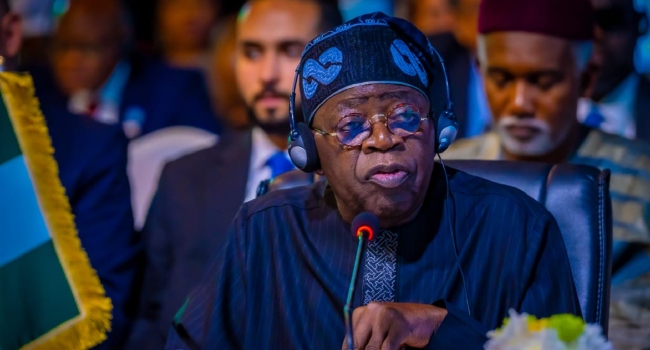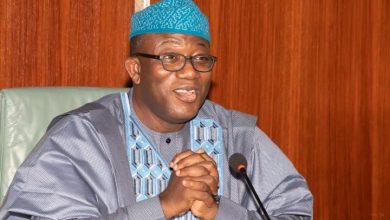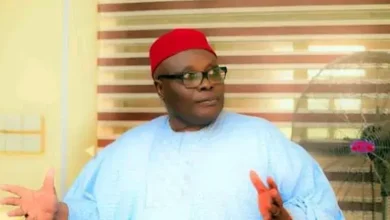Fix Inflation and Power to Secure Legacy as Greatest – Economist Urges Tinubu as CSOs Applaud FG Reforms

According to Paul Alaje, a well-known Nigerian financial analyst and Chief Economist at SPM Professionals, President Bola Ahmed Tinubu has the potential to be Nigeria’s greatest leader — but only if he can decisively address inflation and the country’s electrical difficulties within the next two years.
Alaje made the claim on Monday during an appearance with Channels Television’s morning show.
Reviewing President Tinubu’s performance after two years in power, Alaje stated that while some of the administration’s programs have produced achievements, others have failed to alleviate Nigerians’ economic burden.
“After these two years, a few things have worked and another few have not worked,” according to him.
He mentioned inflation, which was 23.7% in April 2025, as a major concern, saying that failure to manage it would render other initiatives ineffective in the view of Nigerians.
“Over the next two years, we should seek for ways to completely control inflation. That is the pinnacle for the people. If inflation is not controlled, no matter what is done, people will not experience the effects,” Alaje stated.
The economist stressed the critical necessity for the Tinubu administration to handle Nigeria’s chronic electrical crisis, particularly in terms of industrial power requirements.
“Secondly, President Tinubu should begin setting the groundwork for electricity. “When he became president, I informed him,” he added.
Reflecting on the previous administration, Alaje stated that he provided similar recommendations to former President Muhammadu Buhari.
“When previous President Muhammadu Buhari was in power for eight years, I told one of his former colleagues that the president can only succeed if he has a single goal: repair electricity and connect it to manufacturers. “I’m telling President Bola Tinubu the same thing.”
He said, “If you want your name to be heard throughout time, fix the power and electricity. We will remember him as one of history’s greatest presidents. Make power available, especially for manufacturers.”
Although Nigeria’s inflation rate has moderated slightly month to month, prices for products and services remain high across the country.
Nigeria currently has one of the world’s greatest energy access gaps, with over 13.2 million users in a population of more than 200 million reliant on a national grid that generates only 5,000 megawatts of power.
On Monday, civil society organizations praised the federal government’s economic strategy and fiscal measures under the Renewed Hope Agenda.
Read Also: Peter Obi to Tinubu: Is the Coastal Road More Important Than Securing Nigeria?
Speaking to journalists, the coalition, known as the Independent Civil Society Groups in Nigeria, praised strategic interventions in infrastructure, education, health, and economic diversification, highlighting Senator Abubakar Atiku Bagudu, Minister of Budget and Economic Planning, for his role in shaping Nigeria’s fiscal policy.
Dr. Emmanuel Agabi, President of the coalition, told reporters that the Renewed Hope Agenda represents a “strategic turning point” in Nigeria’s road toward inclusive prosperity and long-term development.
“President Bola Ahmed Tinubu’s administration, which began on May 29, 2023, embarked on a transformative path with the Renewed Hope Agenda. “This comprehensive policy framework aims to revitalize Nigeria’s economy, improve governance, and improve the quality of life for its citizens,” Dr Agabi said.
He went on to say that the Budget and Economic Planning Minister played a crucial role in this development.
The coalition praised the 2025 appropriation plan, called the “Budget of Restoration,” for focusing on capital investment and judicious expenditure.
He stated: “The 2025 budget, appropriately termed the ‘Budget of Restoration,’ displays a commitment to responsible financial management and wise resource allocation. The budget, totaling ₦54.99 trillion, prioritizes capital investment, with infrastructure and economic development projects receiving ₦23.4 trillion (42.6% of total spending).
Despite their initial inflationary impacts, the withdrawal of fuel subsidies and naira unification were viewed as bold but essential steps toward economic stabilization.
“These measures, while initially contributing to inflationary pressures, have improved fiscal transparency and reduced the fiscal deficit from 5.4% of GDP in 2023 to 3.0% in 2024,” according to the analysis.
Major infrastructural projects, such the Lagos-Calabar Coastal Highway and the Sokoto-Badagry Superhighway, were cited as examples of government resolve.
He further explained: “The administration has launched the Renewed Hope Infrastructure Development Fund (RHIDF), targeting the mobilization of ₦20 trillion to finance critical projects across the country.”
The coalition supports greater budgetary expenditures for education and health, including ₦3.52 trillion and ₦2.48 trillion in the 2025 budget, respectively.
The report also highlighted social impact programs such as the Nigeria Education Loan Fund (NELFUND), the Student Loans Act 2024, and the construction of primary healthcare centers across the country.
The coalition praised efforts to diversify the economy beyond oil, highlighting new investments in agriculture, mining, and digital innovation.
Agabi said: “The government has declared a state of emergency in agriculture… while the 3 Million Technical Talent (3MTT) Programme aims to train three million Nigerians in high-demand tech skills by 2027.”
Dr Agabi also stated that equity-focused policies were creating possibilities for all Nigerians.
He pointed out: “The inclusion of state-level infrastructure funds and national student loan schemes also reflects a broader vision of equity and access, ensuring that the gains of reform are felt beyond major cities and by future generations.”





